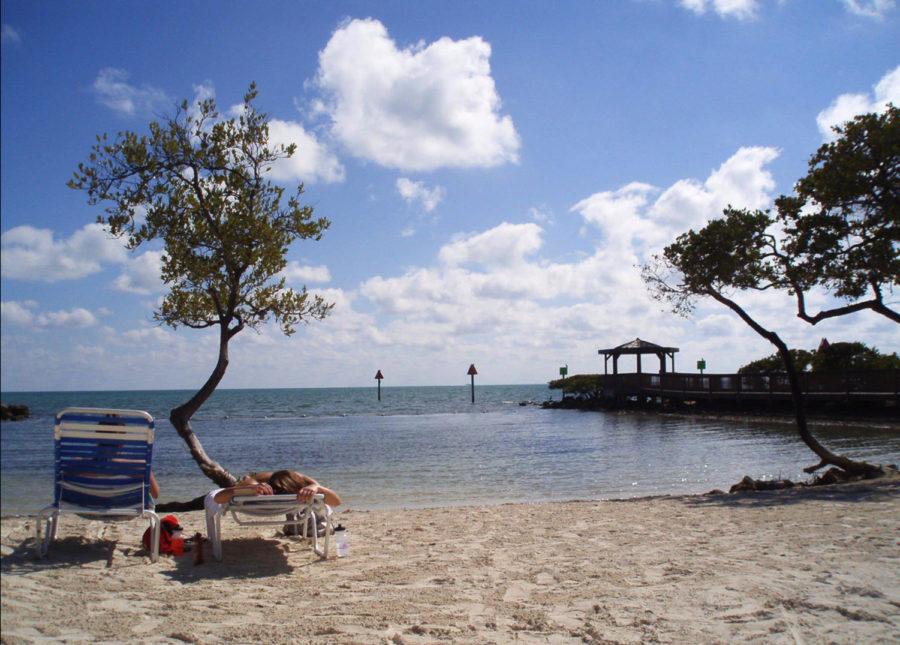Gross: U.S. workers suffer from lack of vacation
Photo: Jonathan Krueger/Iowa State Daily
U.S workers get very little vacation time compared to other workers throughout the world. Some countries, especially in Europe, mandate up to 30 days paid vacation for each worker.
September 4, 2013
At first glance, America might seem to be a nation built around the ideals of leisure and relaxation. Celebrities whom we idolize are often pictured stretched out on beaches or lavishly dressed at grand events. In this day and age, the “American dream” means being wealthy enough to afford travel, vacation and other such luxuries.
Enclosed in our cubicles or offices, we daydream of the tropical beaches of the Caribbean, or the riverside vendors of cultured Venice. Radio competitions offer cruises and getaways as grand prizes. It seems that every other commercial on cable TV is for hotel or flight deals.
As such, many are surprised to find the U.S. is the only nation with a developed economy in the world without legally mandated vacation time for workers.
So, though in appearance we might seem like a country committed to the high life, we are in fact considered more work obsessed than nearly any other nation.
Canada and Japan, considered to be at the low end of legally mandated paid vacation, have 10 days of enforced paid vacation. Most European countries provide their employees with somewhere around 20 days, others have as many as 30.
Imagine having an entire month every year of paid vacation to do what you please. Americans have a reputation for being somewhat culturally ignorant; could this be a result of not having the ability to vacation around the world?
Europeans, with an average of more than 20 paid work days, are much more able to visit places around the world. Though traveling can be very expensive, more than anything, it’s time-consuming. And for many Americans, time is hard to find.
Even on low wages, a European worker can at least vacation in the countryside or somewhere equally financially manageable. Even Japanese workers, with 10 days, have at least some time to let go of the everyday stresses of work.
However, nearly one in every four Americans has absolutely no paid vacation or paid holidays, meaning these individuals have to choose between much-needed relaxation and their ability to pay the bills. Some in the U.S. are able to take for granted their cozy week at home from Christmas to New Year’s. However, many workers, especially those in the service industry, don’t even get that basic luxury.
Having government-mandated paid vacation wouldn’t cost taxpayers more money, because it wouldn’t be the government dishing out salary during vacation, it would be the businesses. If all businesses had to offer workers a base 10-day paid vacation, then added bonuses would stack on top of that, benefiting individuals with long-term loyalty to their companies.
So, what can we do about it? Nationwide legislation isn’t written and approved every day, but the first thing we can do is show that vacation time is an issue American workers care about. Too many U.S. workers are unaware of how America’s vacation time sizes up to other developed countries; the knowledge that our neighbors in Canada and Europe are able to kick back for nearly a month at a time is a strong motivating factor.
Vacation time may not be a hot button issue for many Americans, unlike abortion or gay rights, but it is incredibly important. Without time off, workers’ efficiency will suffer, as will their desire to return to the cubicle every Monday morning. Increased vacation time fosters a better work environment — and happier workers.
The first step to fixing this issue is to make it known. Supply will meet demand: The more U.S. workers ask for mandated vacation time, the more likely it is we’ll see success.

















